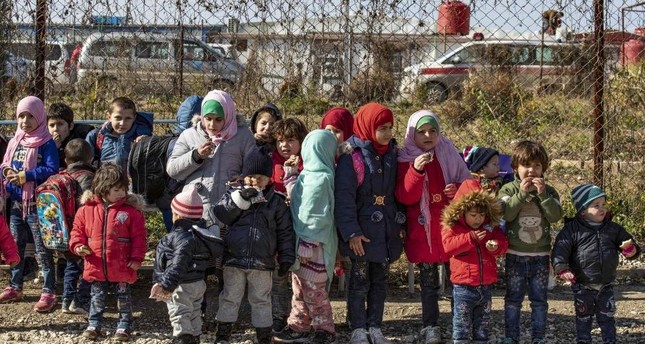
PACE urges European countries to repatriate children of Daesh terrorists
by DAILY SABAHThe Parliamentary Assembly of the Council of Europe (PACE) urged European countries to repatriate the children of Daesh fighters stranded in Syria and Iraq.
PACE Commissioner for Human Rights Dunja Mijatovic made the call during a session in Strasbourg Thursday, and while 83 members voted in favor of the resolution, 10 voted against it and 10 others abstained.
In her speech, Mijatovic said that the children of Daesh fighters are not responsible for their parents' decision to join terrorist groups, and the children should not be left to die there to "heal the wounded souls of the victims of terrorism."
She continued by noting that the al-Hol camp in northern Syria hosted over 73,000 people in 2019, with 90% of its population consisting of women and children and while the population slightly decreased this year, the proportion of women and children has increased this year.
"Malnutrition, infected wounds, severe burns and acute diarrhea continue to cause the death of children on a daily basis," she said, as she argued that the only way to move forward will be by repatriating these children.
Mijatovic also noted that intelligence and security experts support children's repatriation for control and rehabilitation purposes.
The international community has been fighting Daesh for years, but this bloody group has remained undefeated with its militias. By 2018, a total of 7,366 foreign fighters returned to their home countries or appeared to be in the process of repatriation. Although Daesh is mostly defeated, dealing with the children of foreign fighters in Syria and Iraq is posing a dilemma for governments in their home countries. Many of the foreign fighters and their families are in prison or special camps in Iraq and Syria.
Despite being generally reluctant to bring back former Daesh members, the case of repatriating children is another issue, with the U.N. urging countries to take action. Some countries, including France, Germany, Norway and Denmark, had in the past also repatriated the children of former Daesh members or of those that lost their lives during the conflicts.
Turkey has criticized Western countries for refusing to repatriate their citizens who left to join Daesh in Syria and Iraq and stripping some of them of their citizenship. Although the 1961 New York Convention made it illegal to leave people stateless, several countries including France have not ratified it, and recent cases have triggered prolonged legal battles. The U.K. alone has stripped more than 100 people of citizenship for allegedly joining terrorist groups abroad.